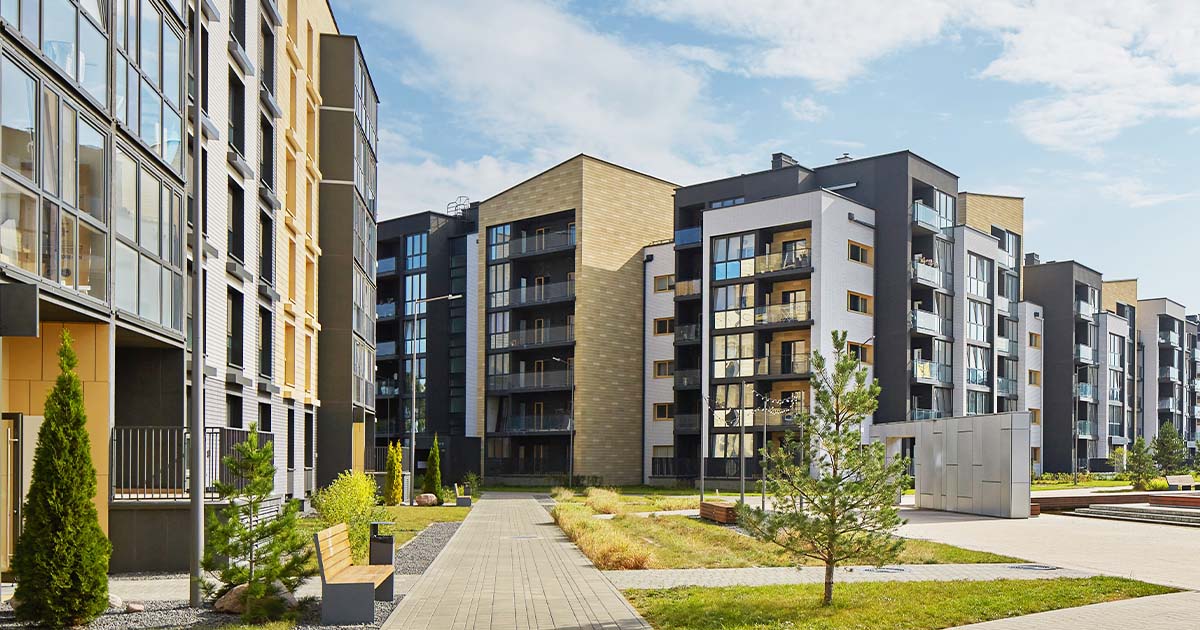Student Housing Conference – 5 Key Takeaways

On Tuesday 9 May, LD Events organised an in-depth review of the current student housing market with panel discussions from a wide range of industry experts.
Here are my five takeaway points from the Conference:
Demand versus Viability
The student housing sector is seeing unprecedented demand, largely driven by a 23% increase in international students and a 33% increase in postgraduate students since the 2019/2020 academic year. During that 2 year period there has been an increase in demand of 59,190 beds in London but only an extra 1,511 PBSA units have been built.
So what’s stopping us from building more? Money!
Despite a healthy growth in rents within the sector, they can’t keep up with rising costs from construction (including as a result of the Building Safety Act), the unwieldy planning system and operator costs (including a 30-50% increase in the cost of utilities and staff pay rises of 10% to keep up with inflation). It costs an average of £80/90k to build 1 unit of PBSA, which would likely need to command an annual rent of £7.5k to meet viability requirements – for comparison, the average student loan outside of London is £5.5k, creating an obvious strain on profitability.
This also raises issues beyond the real estate sector. On the back of a failing student loan system, we risk creating a two-tier market where certain universities are only accessible to students from the wealthiest backgrounds. This issue is not confined to London either; Durham saw a 14.9% rent rise but demand was seemingly unaffected. It is thought this is partly due to the fact that 38% of students at Durham are from independent schools, whose families are more likely to be able to assist with the increased rents.
Viability is the biggest challenge facing this industry and, despite innovation from the private sector, universities and the Government are going to have to address this issue if they want to keep attracting the best students – and not just the wealthiest ones.
Out with the new, in with the old?
As the industry strives to bridge the gap between available units and ever-increasing demand, one solution is to repurpose existing buildings rather than build from scratch – in particular, the number of vacant department stores and office buildings were identified as a potential growth area.
For many schemes, this could reduce costs given that planning can be easier to obtain when redeveloping existing buildings however, retrofitting isn’t always cheaper. Given the focus on net zero targets, heavy capex can be required to improve the sustainability credentials of existing building stock. This risks creating a two-tier market (as is being increasingly being seen in the office sector) where only the top investors can hold ‘green’ stock.
Location, Location, Location
Location is always important, but in a sector where the occupiers have such specific (and usually predictable) requirements, location really is everything! Student satisfaction is known to be lower if they are not happy with the location – after all a lot of students aren’t just going to University for the academics. From my personal experience, some universities in London couldn’t guarantee me a room in student accommodation as my family home in Essex was deemed commutable and consequently, I did not apply to those universities.
As well as building the right types of PBSA in the right towns and cities, the micro-location also counts – this means consulting people with local knowledge to ensure that accommodation is being built in the best locations within towns/cities for the intended end-users.
What else is important to students?
Other than the price and location, what else matters to gen Z/ Alpha students?
Unsurprisingly, high speed internet is number 1 on the shopping list, followed by smart tech and security. Research has found that students don’t want to pay for social spaces, which is good news for developers as they can maximise (and more importantly rentalise) all available space within a scheme. That said, there are certain things that students expect to be included as standard (at no extra cost), such as well-being support and strong ESG credentials.
Ultimately, it is important for universities and investors that developers build schemes that will be popular and therefore successful. Consistent with my own experience when applying to University, 50% of students responding to the UCAS Student Accommodation survey 2022/2023 said that the availability of accommodation had influenced their decision on where to study.
Operators coming to the fore
Operators are now front and centre of the accommodation offering especially following Covid and in light of the cost of living crisis. This is leading to an increase in brand recognition and a desire to live in branded accommodation. 60% of students living in PBSA indicated that brand was a factor in choosing their accommodation. It is therefore more important than ever that owners appoint the right operator for their scheme.



